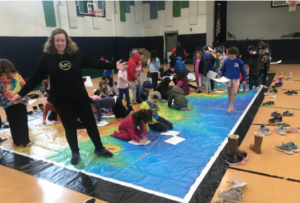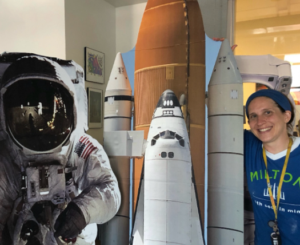MILTON Ignites Student Interest in Air and Space
March 18, 2025 by
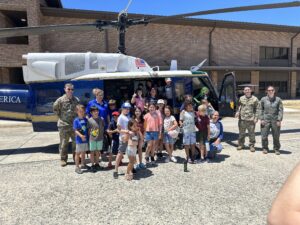
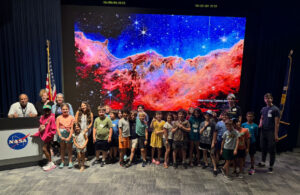
March 18, 2025 by


For many years, MILTON has had strong curricular offerings surrounding space and aviation. This programming aims to educate students about the wide variety of existing careers in air and space and help them discover their own interests and skills in this field. The variety of opportunities across grade levels, which build on one another and use students’ previous experiences to further their understanding of aviation and space, has created a strong and steadily growing contingent of students with excitement for this field.
While registration for the 7th annual Aerospace Camp this summer is open, we are featuring the many opportunities MILTON students have to study aerospace-related topics.
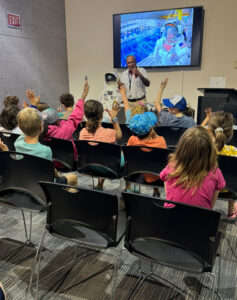
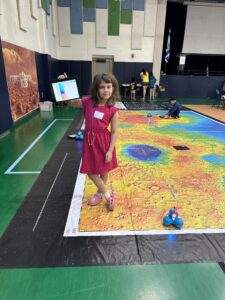
Aerospace Camp
For one week each summer, aerospace campers in grades 2-6 go on field trips and tours (sometimes behind the scenes!) of space-related museums and sites, learn design techniques like 3D printing, conduct space-related science experiments, and meet experts in the field.
One of the special things about Aerospace Camp is the exclusive access campers have to experts and behind the scenes information. Students have met with NASA astronauts and scientists with expertise and skills ranging from black holes to painting in space. They complete workshops on living in space with these experts and have the opportunity to ask their own questions about their work.
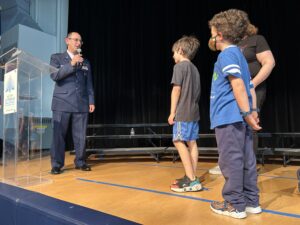
Aerospace Camp also provides enriching, interactive experiences where students can fully immerse themselves in their learning. One highlight is a visit to the Andrew Air Force Base, where students fly helicopter flight simulators and feel what it’s like to sit in the pilot seat. Like many signature MILTON programs, Aerospace Camp includes a healthy amount of design thinking elements, like building and launching rockets throughout the week.
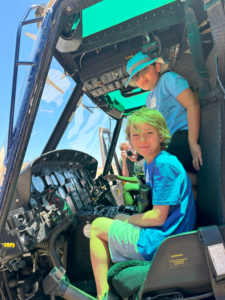
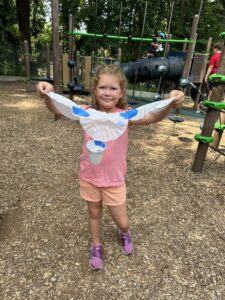
Students also work with a “Giant Mars Map,” a unique educational tool given to MILTON by the Aldrin Foundation. This is a large floor covering displaying Mars’s topography with accurately scaled landmarks and landing sites, a historical Mars mission timeline, and comparative data between Mars and Earth. Students program model Mars rovers to explore the planet, collect information, and practice the problem solving space exploration often entails. Finally, students from the first year of Aerospace Camp also still fondly remember getting to see real moon rocks!
Over the past few years, camp directors Chaya Shinensky and Melinda Viteri have also developed a curriculum integrating Jewish concepts and tradition such as the Rosh Chodesh moon cycle.
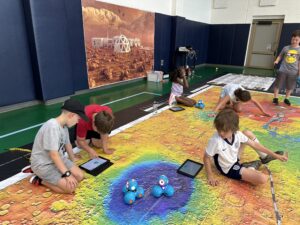
Space Curriculum in General Studies
In Grade 2, students spend the second half of the year learning about space. In January, they spend several weeks researching planets assigned to them through books, videos, online databases, and field trips. They then compile their research into informational books while learning about text features and nonfiction writing skills.
Another major part of the space unit is the Mars Innovation Project, which students work on during their Design Lab classes. As part of a nationwide competition, students design a tool that generates food, energy, or water for a potential Mars mission. Using materials from the Design Lab such as cardboard, bottles and caps, foil, and popsicle sticks, they try to create a project that is both unique and realistic. Students also envision what materials would be needed to create their designs in real life, how it would be transported, and what challenges they might face. Using the Mars Map, they also use topographical features to plan where on Mars their designs might be placed.
This unit lays the foundation for further studies in space and engineering, which many students take advantage of in later years. Students get exclusive opportunities here as well; highlights from last year include MILTON’s first ever behind-the-scenes tour of NASA Goddard and a Q&A with Jeff Hoffman, the first Jewish person NASA sent to space. In 2021, students participated in NASA’s ExoLab experiment by growing plants to compare to others grown in space.
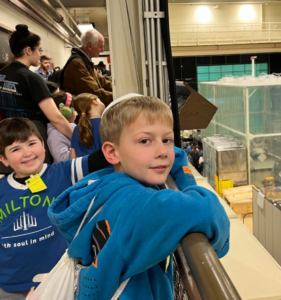
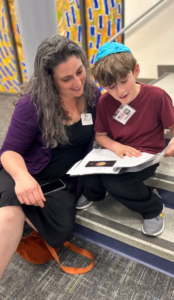
Flight Week
In the Middle School’s annual Immersive Learning Week program, students have the opportunity to spend a week diving into all aspects of flight: the physics of flight, the history of flight, the logistics of flight, and careers in flight. This is a dynamic program with evolving trips and projects each year, letting every group of students experience exciting and new opportunities.
In many ways, this program is a continuation of students’ work in Aerospace Camp, with many choosing to participate in both programs. Similar to Aerospace Camp, students work to build models. In some years, they use their newfound knowledge about what a successful airport requires to compete to create models of their own airports. In others, they construct model planes and refine them throughout the week as they learn about new considerations for plane design. Students also expand on their usage of the Mars Map in Grade 2 and Aerospace Camp by learning to fly drones to explore Mars’s surface.
Students also get to speak to a variety of professionals in the field of aviation and flight including pilots, air traffic controllers, air safety officials, and plane engineers.
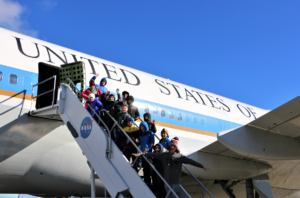
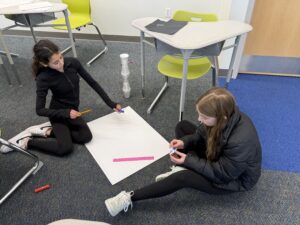
Aerospace programming at MILTON is largely led by Melinda Viteri and Chaya Shinensky, NASA-certified STEM educators. In 2022, Melinda and Chaya presented student work at the annual Explore Mars conference in D.C. They are also working to expand the Aerospace Camp programming nationwide and internationally. In summer 2023, they brought Aerospace Camp to the Brawerman East Jewish Day Camp in Los Angeles.
Melinda also co-founded the Aviation Youth Mentoring Program, which provides pilot training to underprivileged youth, and was awarded the Presidential Medal of Achievement in 2024 for her work there. Read more about Melinda and Chaya’s perspectives on STEM education in the Prizmah Journal here.
